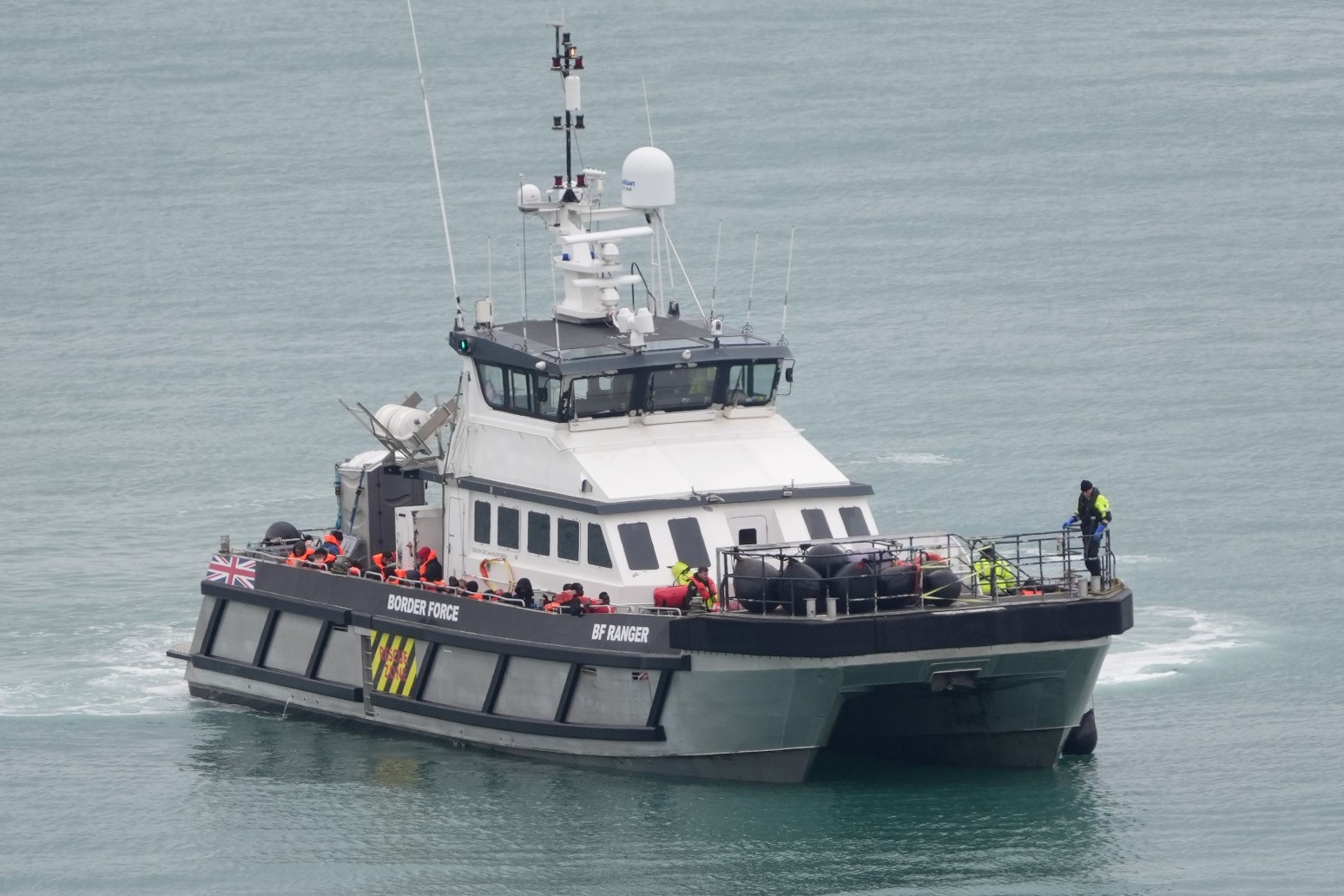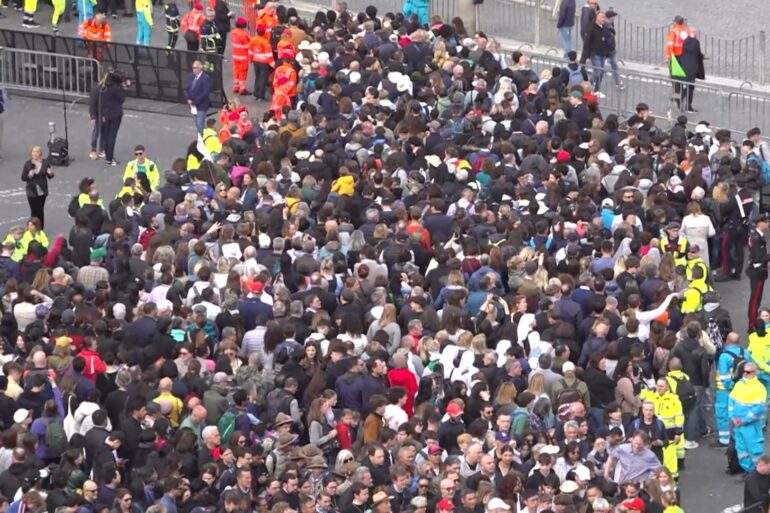-
 play_arrow
play_arrow
Kl 1 Radio Local radio for west Norfolk
-
 play_arrow
play_arrow
KL DISCO KL Disco Playing Disco Music from the 70's onwards.24/7
-
 play_arrow
play_arrow
KL COUNTRY KL COUNTRY Playing New and Classic Country Music 24/7
-
 play_arrow
play_arrow
KL ROX KL ROX The best of New and Classic Rock.24/7
-
 play_arrow
play_arrow
KL SUMMER Summer Vibes 24/7 from KL1 Radio across West Norfolk
-
 play_arrow
play_arrow
KL CLASSICAL Your Symphony Starts Here
-
 play_arrow
play_arrow
KL CHILL Just Chill!
-
 play_arrow
play_arrow
KL POP The Best POP Hits all day Long!
-
 play_arrow
play_arrow
KL XTRA KL XTRA
music_note

Five people including a child died while attempting to cross the English Channel as government says it is doing “everything we can” to stop the boats.
Five people including a child died while attempting to cross the English Channel just hours after the Rwanda law aimed at deterring migrants cleared Parliament.
Home Secretary James Cleverly said “these tragedies have to stop” and insisted the Government is doing “everything we can” to stop the boats.
Prime Minister Rishi Sunak said the Rwanda scheme will “deter vulnerable migrants from making perilous crossings” and break the business model of the criminal gangs organising the boats.
But in the early hours of Tuesday a small boat carrying more than 110 people set sail from Wimereux in northern France and got into difficulties.
Three men, a woman and a child were killed, according to a French coastguard statement reported by the BBC.
Mr Cleverly said: “These tragedies have to stop. I will not accept a status quo which costs so many lives.
“This Government is doing everything we can to end this trade, stop the boats and ultimately break the business model of the evil people smuggling gangs, so they no longer put lives at risk.”
The incident at Wimereux occurred around four hours after the Safety of Rwanda (Asylum and Immigration Bill) cleared Parliament.
Preparations for the first flights to Rwanda will begin within days, with asylum seekers who could be relocated being identified and potentially detained.
Charter planes are expected to leave for Rwanda in 10-12 weeks, with Mr Sunak promising “multiple flights a month”, although minsters conceded numbers being sent to Kigali will be small at first.
Some £290 million has already been committed to the Rwanda scheme, with a further £100 million earmarked over the next two years.
The cost of putting each migrant on a plane is expected to reach £11,000, while Rwanda will get £20,000 for each asylum seeker relocated there and a £120 million top-up once 300 have arrived.
The Prime Minister said: “The passing of this landmark legislation is not just a step forward but a fundamental change in the global equation on migration.
“We introduced the Rwanda Bill to deter vulnerable migrants from making perilous crossings and break the business model of the criminal gangs who exploit them.
“The passing of this legislation will allow us to do that and make it very clear that if you come here illegally, you will not be able to stay.
“Our focus is to now get flights off the ground, and I am clear that nothing will stand in our way of doing that and saving lives.”
Mr Sunak has insisted he will not let the European Court of Human Rights block flights to Rwanda.
The court is an institution of the Council of Europe, which urged Mr Sunak to abandon the Rwanda plan.
The council’s human rights commissioner, Michael O’Flaherty, said: “The United Kingdom Government should refrain from removing people under the Rwanda policy and reverse the Bill’s effective infringement of judicial independence.”
The United Nations has also called for Mr Sunak to rethink the Rwanda plan.
Filippo Grandi, the UN High Commissioner for Refugees, said: “The new legislation marks a further step away from the UK’s long tradition of providing refuge to those in need, in breach of the Refugee Convention.”
The charity Freedom from Torture, alongside Amnesty International and Liberty, criticised the Government for ignoring the findings of the Supreme Court, which ruled in November that the policy was unlawful.
The groups said the Bill poses “a significant threat to the rule of law” by undermining what protects people from an abuse of power by the state, and described Parliament as a “crime scene”.
Ministers are braced for legal challenges to the scheme and the judiciary has made 25 courtrooms available to deal with cases.
Illegal migration minister Michael Tomlinson told Times Radio: “It’s inevitable, I’m afraid, that there will be challenges.”
But ministers believe the new law will dramatically restrict the ability of migrants to legally avoid being sent to Rwanda.
Mr Tomlinson suggested that thousands of people could eventually be sent to Rwanda, comparing it to the deal signed to return Albanians to their home country.
After the Safety of Rwanda Bill receives royal assent – expected in the coming days – the process of ratifying a treaty drawn up with Rwanda will begin.
The Lords backed down after MPs rejected a requirement that Rwanda could not be treated as safe until the secretary of state, having consulted an independent monitoring body, made a statement to Parliament to that effect.
Lord Anderson, the crossbench peer responsible for the call, said: “The time has now come to acknowledge the primacy of the elected House and to withdraw from the fray.”
Earlier in the upper House, Labour did not press its demand for the Bill to include an exemption from removal for Afghan nationals who assisted British troops, after what critics hailed as a concession.
The Government promised it will not send those who are eligible under the Afghan Relocations and Assistance Policy (Arap) to Rwanda.
Shadow home secretary Yvette Cooper called the Bill “an extortionately expensive gimmick rather than a serious plan to tackle dangerous boat crossings”.
“The Rwanda scheme will cost more than half-a-billion pounds for just 300 people, less than 1% of asylum seekers here in the UK – and there is no plan for the 99%,” she said.
“Instead of spending £2 million per asylum seeker on this failing scheme, they should be putting that money into boosting our border security instead – that is Labour’s practical plan.”
Rwandan government spokeswoman Yolande Makolo said: “We are committed to the migration and economic development partnership with the UK and look forward to welcoming those relocated to Rwanda.”
Published: by Radio NewsHub

Similar posts
Upcoming shows

Weekend Back Trax
6:00 am - 8:00 am

Kelvin Scott – Weekend Breakfast
8:00 am - 11:00 am

Tom Green – Classic Hit Lunchtime
11:00 am - 1:00 pm

Darren Furzey – Classic Hit Weekend
1:00 pm - 3:00 pm

Lee Vincent – Classic Hit Saturday
3:00 pm - 6:00 pm
Message Us
Copyright The Mediasite UK - 2025








